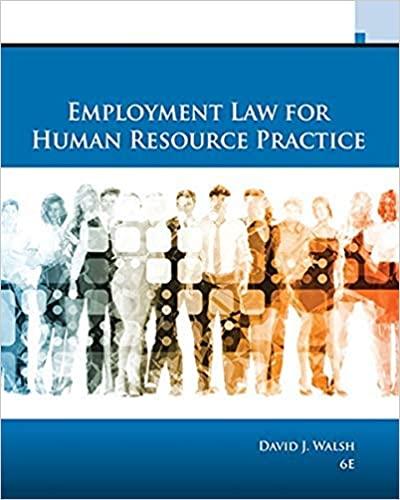An African American employee with 20 years on the job and no prior disciplinary record was issued
Question:
An African American employee with 20 years on the job and no prior disciplinary record was issued a “final written warning” as discipline for his involvement in a work-place incident. Under company policy, this warning placed the employee at risk of immediate termination for any subsequent offense, and rendered him ineligible for a promotion that he had been in line for receiving. The employee had “bear-hugged” the coworker after some playful banter between the two. Horseplay of this kind was common in this workplace and the two men had laughed about it at the time. However the coworker subsequently claimed that he had been injured in the encounter and filed a workers’ compensation claim. The plant human resources director immediately suspended the African American employee and recommended his termination. The human resources director had made a number of racially insensitive remarks during the previous year, including instances of using the “N word.” Disciplinary decisions, including terminations, were made by corporate-level managers. However, the plant’s human resources director actively campaigned for terminating the African American employee. On several occasions he misinformed upper level managers regarding the discussions that had gone on about how to handle the case, falsely implying that there was managerial consensus on a termination. Another manager became aware of the situation and immediately e-mailed the company president to inform him that horseplay of this kind was very common in the plant and was generally ignored by managers, that the human resources director was known for uttering racially insensitive comments, and that the coworker had a history of making questionable workers’ compensation claims for injuries allegedly incurred on the job. After coming to the plant and speaking to the two employees and witnesses to the incident, both employees were issued final written warnings. The African American employee sued for race discrimination. What should the court decide? Why? (Chattman v. Toho Tenox America, 686 F.3d 339 (6h Cir. 2012)).
Step by Step Answer:






